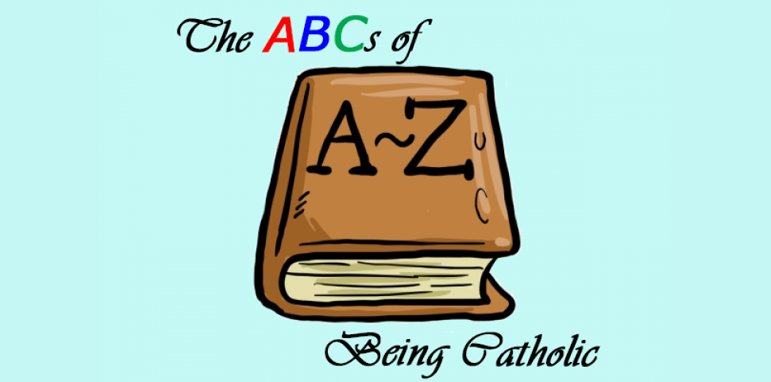This week, we’ll take a fun twist to learning about elements and terms in the Catholic faith. Test your knowledge of these common and not so common words for each letter of the alphabet.
Ambo - A tall pulpit, or lectern, used to read Scripture during Mass.
Beatific vision - The beatific vision is the sight of God, which brings everlasting happiness and peace.
Communion of Saints - The Communion of Saints is the union of all those, both living and dead, who believe in Christ.
Doctor of the Church - "Doctor of the Church" is a title that the Church gives to saints whose writings have greatly helped others understand matters of faith or doctrine.
Ecumenism - Ecumenism is the movement to establish unity among Christian churches.
Fiat - Fiat is a Latin word meaning "Let it happen" or "Let it be done."
Grace - Grace, a gift that God freely gives us, is God’s life within us, which fills us with love and enables us to do God’s will.
Hallow - To hallow is to venerate, honor, or treat as holy.
Indulgence - An indulgence is the removal of all or some of the punishments that we must suffer in purgatory for the effects of our sins on earth.
Jubilee - In the Old Testament the Jewish celebration every fiftieth year to commemorate the deliverance of the Israelites from Egypt.Since 1470 the custom has been to hold a regular jubilee every twenty-five years. However, the popes have declared extraordinary jubilees at other times, e.g., in 1933 to commemorate the nineteenth centennial of the Redemption. Jubilees are also celebrated by bishops, priests, religious, and married people to commemorate the fiftieth anniversary of their respective ordination, profession, or marriage.
Kerygma - Kerygma (from the Greek keryssein, to proclaim, and keryx, herald) refers to the initial and essential proclamation of the gospel message.
Liturgy of the Hours - The Liturgy of the Hours is the Church’s official prayer for certain times of the day and night. It is also called the Divine Office. It consists of psalms, readings, hymns, and prayers.
Marks of the Church - The marks of the Church are the four qualities of the Catholic Church that distinguish it as the true Church established by Christ to bring salvation to humankind: one, holy, catholic, and apostolic. The Church is one because it is united in faith, worship, and authority; holy because it is in communion with God; catholic because it is universal; and apostolic because it is founded on and faithful to the teachings of Jesus Christ and the apostles.
Natural law - The natural law, which is part of human nature and lasts forever, allows people to know the difference between good and evil.
Oral tradition - Oral tradition is a body of stories that has been passed down by word of mouth. In ancient Israel, before the Gospels were written, people told stories about God and all God did for them.
Pentateuch - The Pentateuch is the first book of the Old Testament.
Quam Singulari - The decree issued August 8, 1910, by the Sacred Congregation of the Sacraments, under the authority of Pope St. Pius X, stating: "The age of discretion, both for Confession and for Holy Communion, is the time when a child begins to reason, that is about the seventh year, more or less. From that time on begins the obligation of fulfilling the precept of both Confession and Communion."
Ritual - A ritual is a formal ceremony that has a set of rules. The eucharistic celebration is a ritual of the Catholic Church.
Sanctuary lamp - A lighted candle to show that the Blessed Sacrament is present in the tabernacle
Theotokos - Theotokos is a Greek word meaning "God-bearer." The early Church used this word to express the belief that Mary is truly the Mother of God.
Ubiquity - The presence of a being in all places at once. Omnipresence of God.
Viaticum - Viaticum, which means "provision for the journey" in Latin, is Holy Communion that is given to a dying person.
Word of God - God speaking to us in Scripture.
Xmas - The X in Xmas comes from the word Christ. In Greek, the language of the Christian scriptures, Christ comes from Christos (Χριστός) and begins with the Greek letters chi (X) and rho (ρ).
Yahweh - Yahweh is a Hebrew word meaning "I am who I am." In the Old Testament, Yahweh is God’s sacred name, which God revealed to Moses.
Zion - One of the hills on which Jerusalem stood. Used as a fortress, it was captured by David and renamed the Citadel of David (II Samuel 5:7). It assumed a sacred character when he brought the Ark to Zion. Gradually the name spread until it was applied to all of Jerusalem.
www.blestarewe.com. www.uscatholic.org. www.catholicculture.org


